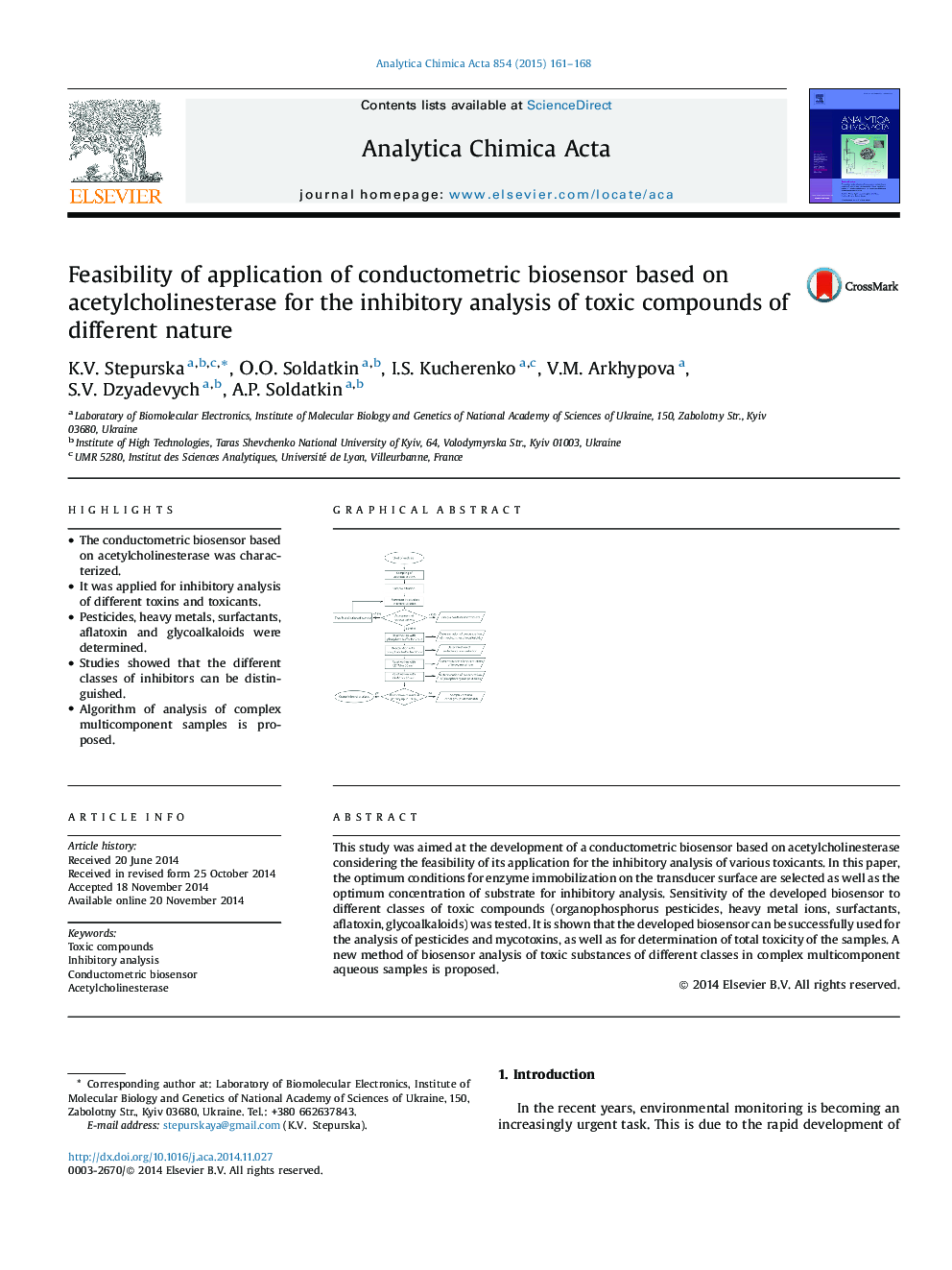| Article ID | Journal | Published Year | Pages | File Type |
|---|---|---|---|---|
| 1164276 | Analytica Chimica Acta | 2015 | 8 Pages |
•The conductometric biosensor based on acetylcholinesterase was characterized.•It was applied for inhibitory analysis of different toxins and toxicants.•Pesticides, heavy metals, surfactants, aflatoxin and glycoalkaloids were determined.•Studies showed that the different classes of inhibitors can be distinguished.•Algorithm of analysis of complex multicomponent samples is proposed.
This study was aimed at the development of a conductometric biosensor based on acetylcholinesterase considering the feasibility of its application for the inhibitory analysis of various toxicants. In this paper, the optimum conditions for enzyme immobilization on the transducer surface are selected as well as the optimum concentration of substrate for inhibitory analysis. Sensitivity of the developed biosensor to different classes of toxic compounds (organophosphorus pesticides, heavy metal ions, surfactants, aflatoxin, glycoalkaloids) was tested. It is shown that the developed biosensor can be successfully used for the analysis of pesticides and mycotoxins, as well as for determination of total toxicity of the samples. A new method of biosensor analysis of toxic substances of different classes in complex multicomponent aqueous samples is proposed.
Graphical abstractFigure optionsDownload full-size imageDownload as PowerPoint slide
